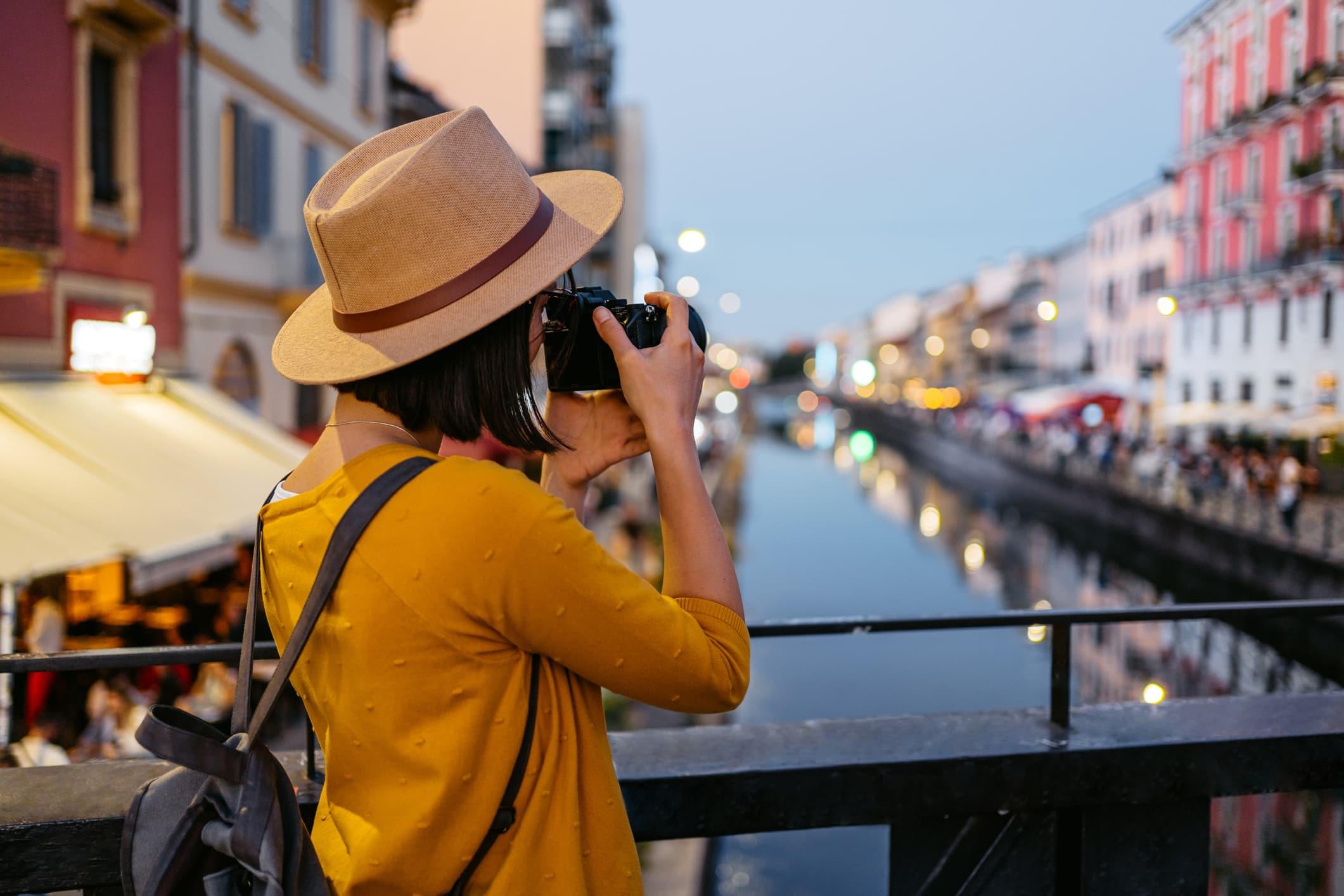Travel is an essential human activity. I’ve been making good use of my passport lately. It serves as a coaster and a leveler for wobbly table legs. It’s a fantastic cat toy.
Welcome to the pandemic of letdowns. Trips that were canceled or were never planned in the first place. Family reunions, study-abroad years, and lazy beach vacations are all possibilities. Poof. Gone. A tiny virus destroyed it, and there is a long list of countries where US passports are not accepted.
According to one report, only one-third of Americans have traveled overnight for leisure since March, and only slightly more, 38 percent, expect to do so by the end of the year. Only a quarter of us intend to travel during the busiest travel season, Thanksgiving. The statistics paint a bleak picture of our dormant lives.
Sponsered4
We are not designed to be this sedentary. Travel is in our blood. “We’ve lived as nomadic hunter-gatherers moving around in small bands of 150 or fewer people for the majority of our species’ existence,” writes Christopher Ryan in Civilized to Death. This nomadic existence was not by chance. It was beneficial. “Moving to a neighboring band is always an option to avoid brewing conflict or simply to change up the social scenery,” Ryan says. “The great affair is to move,” Robert Louis Stevenson put it succinctly.
But what if we can’t move? What if we can’t hunt or gather? What should a traveler do? There are numerous approaches to answering that question. “Despair,” on the other hand, is not one of them.
We are a resilient species. We can tolerate brief periods of forced inactivity. A dash of self-delusion is beneficial. We tell ourselves that we are not grounded. We’re just in between trips, like the unemployed salesman between jobs. We pass the time by reading old travel journals and scrolling through Instagram feeds. We look at trinkets. All of this is beneficial. For a time.
Sponsered4
We put on brave expressions. The cover of the current issue of Canadian Traveller magazine declares cheerfully, “Staycation Nation,” as if it were a choice, not a consolation.
The industry trade organization, the US Travel Association, is launching a national recovery campaign called “Let’s Go There” today. The initiative’s goal is to encourage Americans to turn their idle wanderlust into actual itineraries, and it is supported by a coalition of tourism-related businesses—hotels, convention and visitor bureaus, and airlines.
The travel industry is in trouble. Travelers are as well. “I dwelled on my disappointment so much that it almost physically hurt,” Paris-based journalist Joelle Diderich recently told me, after canceling five trips last spring.
Sponsered4
(Related: How badly has the coronavirus affected the travel industry? These graphs inform us.)
James Hopkins, a Buddhist living in Kathmandu, is a friend of mine. You’d think he’d thrive during the lockdown, which was essentially a meditation retreat. He did for a while.
But during a recent Skype call, James looked haggard and dejected. He was growing restless, he confessed, and longed “for the old 10-countries-a-year schedule.” Nothing seemed to help, he told me. “No matter how many candles I lit, or how much incense I burned, and in spite of living in one of the most sacred places in South Asia, I just couldn’t change my habits.”
Sponsered4
When we ended our call, I felt relieved, my grumpiness validated. It’s not me; it’s the pandemic. But I also worried. If a Buddhist in Kathmandu is going nuts, what hope do the rest of us stilled souls have?
I believe that the very nature of travel provides hope. Travel necessitates wishful thinking. To board a plane for some faraway land, hoping, wishing for a taste of the ineffable, requires a leap of faith and imagination. Travel is one of the few activities in which we engage without knowing the outcome and relish the uncertainty. Nothing is more forgettable than a trip that goes exactly according to plan.
Traveling is not a logical activity. It makes no sense to cram yourself into an alleged seat only to be hurled at breakneck speed to a remote location where you don’t speak the language or understand the customs. All at a high cost. We’d never get anywhere if we stopped to do the cost-benefit analysis. Nonetheless, we do.
Sponsered4
Traveling is not a logical activity. It makes no sense to cram yourself into an alleged seat only to be hurled at breakneck speed to a remote location where you don’t speak the language or understand the customs. All at a high cost. We’d never get anywhere if we stopped to do the cost-benefit analysis. Nonetheless, we do.
A seasoned traveler, James Oglethorpe, is content to sit still for a while and watch “the slow change of light and clouds on the Blue Ridge Mountains” in Virginia, where he lives. “My mind can take me all the way around the world and beyond.”
It is not the location that is unique, but rather what we bring to it and, more importantly, how we interact with it. It is not about the destination or the journey when you travel. It’s about discovering “a new way of looking at things,” as writer Henry Miller put it. We don’t have to go far to get a new perspective.
No one understood this better than Henry David Thoreau, who spent nearly his entire life in Concord, Massachusetts. He observed Walden Pond from every possible angle: from a hilltop, on its shores, and underwater. He’d even bend over and look through his legs, amazed at the inverted world. “Every storm and every drop in it is a rainbow from the right point of view,” he wrote.
Sponsered4
We have not outgrown the quiet beauty of our frumpy, analog world, nor have we grown tired of gazing at Thoreau’s beloved pond. The pandemic, if anything, has reignited our love for it. We’ve seen what an atomized, digital existence looks like, and we (at least the majority of us) don’t like it. The bleachers at Wrigley Field in Chicago; the orchestra section at Lincoln Center in New York City; Tokyo’s alleyways. We miss these locations. We are and always will be creatures of place.
We have not outgrown the quiet beauty of our frumpy, analog world, nor have we grown tired of gazing at Thoreau’s beloved pond. The pandemic, if anything, has reignited our love for it. We’ve seen what an atomized, digital existence looks like, and we (at least the majority of us) don’t like it. The bleachers at Wrigley Field in Chicago; the orchestra section at Lincoln Center in New York City; Tokyo’s alleyways. We miss these locations. We are and always will be creatures of place.
In our rush to return to the world, we should consider the environmental impact of mass tourism. Now is the time to embrace the core values of sustainable tourism and allow them to guide your future travels. Venture off the beaten path. Spend more time at your destination. Off-season travel is recommended. Connect with communities and spend your money in ways that benefit the community. Think about buying carbon offsets. And keep in mind that the whole point of getting out there is to embrace the differences that make the world so interesting.
Sponsered4
“Meeting new people and hearing different points of view is one of the great benefits of travel,” says Pauline Frommer, travel expert and radio host.
So go ahead and book that vacation. According to scientists, it is beneficial to your health. Planning a trip is almost as much fun as taking one. It is pleasurable just to think about a pleasurable experience. Anticipation is a form of reward in and of itself.
I’ve experienced the thrill of anticipatory travel firsthand. My wife, who isn’t usually into travel photography, now spends hours scrolling through Instagram, staring longingly at images of Alpine lodges and Balinese rice fields. “What’s up?” I inquired one day. “They’re just completely enthralling,” she said. “They remind me that there is a vast, beautiful world out there.”
Sponsered4
Many of us, including myself, have taken travel for granted. We became entitled and lazy, which is never a good thing. Tom Swick, a friend and travel writer, tells me that he used to take travel for granted. “I look forward to experiencing it as a gift,” he says now.
Sponsered4




